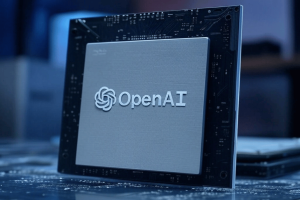OpenAI ‘partners with TSMC,’ snubbing Samsung to develop in-house AI chips – report

OpenAI has reportedly partnered with Samsung’s rival, Taiwan Semiconductor Manufacturing Co (TSMC), to develop its first generation of in-house AI chips. According to Reuters, the tech firm has been working to reduce its dependency on Nvidia and is expected to finalize the design of its silicon in the coming months. Nvidia has a large share of the AI chip market for training and deploying models like OpenAI’s GPT.
But relying on a single supplier has its downsides, pushing tech companies to explore other options, whether through partnerships or by building their own processors.
On top of that, the cost of training and running AI models keeps climbing. Companies working on large language models (LLMs) need massive computing power, with some projects using thousands of processors. Training models like GPT-4 alone are estimated to cost hundreds of millions of dollars in hardware.
OpenAI designing its own AI chip?
Yes, this has been the plan for some time. Not really news at this point. But a confirmation cycle…
Every major hyperscaler is developing and building custom AI chips to handle at least some portion of expected compute requirements as we see… https://t.co/NL8DXtPg5M
— Daniel Newman (@danielnewmanUV) February 10, 2025
The decision comes after OpenAI CEO Sam Altman met with Samsung Electronics chairman Jay Y. Lee last week in a bid to build an open partnership where both companies can support each other.
OpenAI and TSMC’s small scale AI chip programOpenAI’s in-house team, led by Richard Ho, is designing the chip in collaboration with Broadcom. The team has reportedly doubled in size over the past few months, growing to 40 people. Ho, who joined OpenAI over a year ago, previously worked at Alphabet’s Google, where he played a key role in the company’s custom AI chip program.
Reuters reports that Ho’s team is pretty small compared to the massive operations at tech giants like Google and Amazon. Designing a new chip for a big, ambitious project could set the company back $500 million for a single version.
OpenAI’s in-house AI chip is said to be able to handle both training and running AI models, but at first, it’ll be rolled out on a limited scale, but mostly for running models, sources told the news outlet. It won’t play a huge role in the company’s overall infrastructure just yet. The chip is reportedly being manufactured by TSMC using its cutting-edge 3-nanometer process. It has a systolic array architecture, which is pretty common in AI chips, along with high-bandwidth memory (HBM)—the same tech Nvidia uses—as well as advanced networking capabilities.
Featured image: Grok
The post OpenAI ‘partners with TSMC,’ snubbing Samsung to develop in-house AI chips – report appeared first on ReadWrite.
